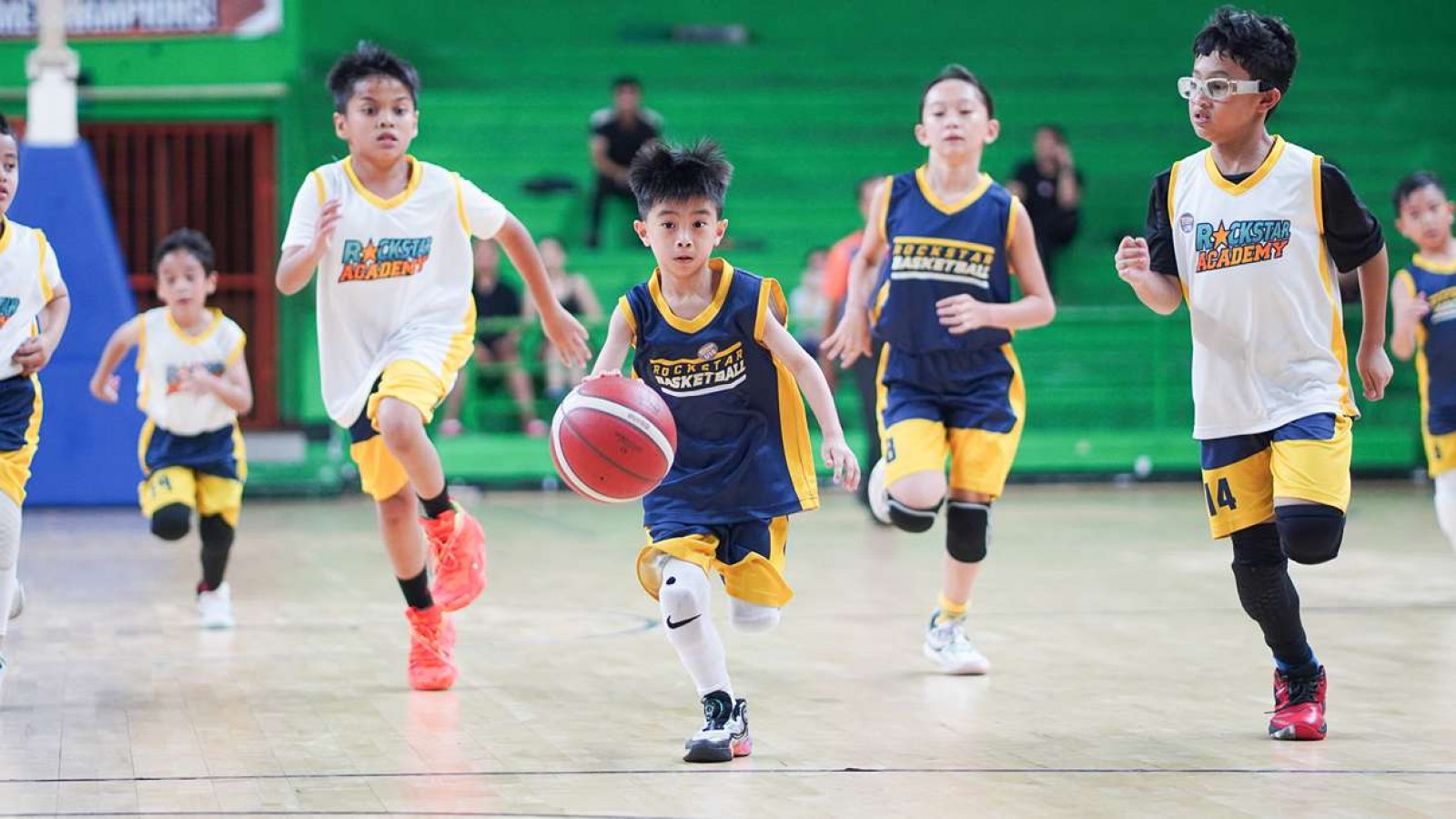A Comprehensive Guideline for Basketball Fouls

Basketball is a fast-paced and exhilarating sport that requires both skill and strategy. However, amidst the intense competition on the court, fouls inevitably occur, disrupting the flow of the game and impacting its outcome.
Understanding basketball fouls, their types, and consequences is essential for players, coaches, and spectators alike. Now, we’ll explain about basketball fouls, providing an overview of the different types, explanations, and consequences for each.
What is Basketball Fouls?
In basketball, a foul is a violation of the rules committed by a player, resulting in the awarding of free throws, possession of the ball, or both to the opposing team.
Fouls can occur during various phases of the game, including offense, defense, and rebounding, and are typically called by referees who closely monitor player conduct and actions on the court.
Different Types of Basketball Fouls
Basketball is a complex and fast-paced game, as it has stricter rules than other sports. Rules such as each team has 24 seconds to attack and the time will be refreshed every time the ball hits the hoop.
Even certain movements are considered foul in this sport, such as walking while holding the ball. Here are some other types of fouls based on NBA:
1. Personal Foul
- Explanation
A personal foul occurs when a player makes illegal physical contact with an opponent, such as pushing, holding, or obstructing their movement.
- Consequences
The fouled player is awarded free throws, with the number of shots depending on the situation (bonus, double bonus, etc.). Additionally, if the team committing the foul has reached a certain limit (team fouls), the opposing team may enter the bonus situation, earning free throws for subsequent fouls.
2. Shooting Foul
- Explanation
A shooting foul occurs when a defensive player makes illegal contact with an offensive player in the act of shooting, thereby impeding their attempt to score.
- Consequences
The fouled player is awarded free throws based on the number of shots they were attempting at the time of the foul. If the shot is made despite the foul, the player is awarded one additional free throw, known as an "and-one" opportunity.
3. Technical Foul
- Explanation
A technical foul is assessed for unsportsmanlike conduct, disrespectful behavior towards referees, or other violations of the rules not directly related to gameplay.
- Consequences
The opposing team is awarded one or more free throws, and possession of the ball is given to the offended team at midcourt. Additionally, the player or coach who committed the technical foul may be subject to ejection from the game, depending on the severity of the offense.
4. Flagrant Foul
- Explanation
A flagrant foul is a severe infraction involving excessive or unnecessary contact, often resulting in potential injury to the opposing player.
- Consequences
A flagrant foul is divided into two categories: Flagrant 1 and Flagrant 2. A Flagrant 1 foul results in two free throws and possession of the ball for the offended team. A Flagrant 2 foul results in immediate ejection from the game for the player committing the foul, along with two free throws and possession for the offended team.
5. Offensive Foul
- Explanation
An offensive foul occurs when an offensive player commits a violation that disadvantages the defense, such as charging into a defender, pushing off to create space, or setting an illegal screen.
- Consequences
The opposing team is awarded possession of the ball at the spot of the foul, and no free throws are awarded.
6. Defensive Fouls
A defensive foul is exactly what it sounds like — it happens when a player on defense breaks the rules while trying to stop the opposing team from scoring.
Not only does it count as a personal foul for the player, but it also adds to the team’s total foul count. If a team commits too many fouls in a quarter, the other team gets free throws.
Here are the most common defensive fouls:
-
Blocking Foul
This happens when a defender physically blocks the offensive player’s path without being in the correct guarding position.
To have a legal guarding position, a defender must:
- Face the opponent straight on
- Have feet firmly set on the ground
- Avoid leaning into or bumping the offensive player
If any of those rules aren’t followed and contact happens, it’s a blocking foul.
-
Reach-In Foul
This occurs when a defender tries to steal the ball by reaching in, but instead makes contact with the opponent’s body or arms.
The key here is ball first, not body first — if you hit the player before the ball, the whistle blows.
-
Illegal Hand Use (Hand-Check)
This is when a defender uses their hands or arms to slow down, push, or steer the offensive player instead of just guarding them with their body.
A little contact might be overlooked, but if the hand contact affects the opponent’s movement, it’s a foul.
-
Intentional Foul
This is a foul that’s done on purpose.
Defenders sometimes do this to:
- Stop the clock (especially near the end of a game)
- Prevent an easy basket
- Force the other team to take free throws in hopes of regaining possession
It’s a strategy, but still against the rules.
7. Team Foul
- Explanation
Team foul refers to a violation committed by a team that results in the opposing team being awarded free throws or other advantages. Team fouls are typically assessed when a player on the defensive team makes illegal physical contact with an opponent, such as pushing, holding, or obstructing their movement.
- Consequences
These fouls are cumulative throughout each quarter or half of the game and can lead to bonus situations, where the opposing team is awarded free throws regardless of whether the foul was committed during a shooting attempt.
8. Unsportsmanlike Foul
While defensive fouls are about breaking the rules during normal play, unsportsmanlike fouls are about behavior — things that go against the spirit of fair play.
These fouls can happen from frustration, bad sportsmanship, or deliberate attempts to disrupt the game. Some examples include:
a. Arguing or Taunting
Talking back to the referee aggressively or mocking an opponent can result in an unsportsmanlike foul.
b. Flopping
This is when a player pretends to be fouled (exaggerating contact or even faking it entirely) to trick the referee.
In the NCAA, it’s a technical foul, and while it’s debated in the NBA, it’s still frowned upon.
c. Delaying the Game
Purposely slowing down the game, such as:
- Interfering with the ball after a made basket
- Hanging on the rim too long after a dunk
- Slamming the ball in frustration
These actions disrupt the flow of the game and can get you penalized.
Conclusion
To master these fouls in their entirety, players must first learn the basic basketball techniques. Such as how to step, shoot, pivot and many more. Players must also be able to control emotions, because basketball requires physical movement.
Sometimes many players cannot control their emotions which makes players get personal fouls which are definitely detrimental to the team.
This rule applies to every basketball competition held anywhere. To be able to join competitions, it is a good idea to enroll in an academy that provides a basketball program. In instance, Rockstar Academy provides several events and competitions such as RockOlympics and Basketball Elite Championships.
At Rockstar Academy, you can also choose various exciting Sports & Performing Arts Programs. Additionally, you can also join other classes in Rockstar and sign up for their free trial classes!
FAQ
How many personal fouls can a player commit before fouling out?
In most basketball leagues, including the NBA and NCAA, players are allowed five personal fouls before fouling out of the game. However, in some youth or recreational leagues, the limit may vary.
Can a player receive multiple fouls on a single play?
Yes, it is possible for a player to commit multiple fouls on a single play, depending on the nature and severity of the infractions. For example, a player may be called for a personal foul while also receiving a technical foul for arguing with the referee.
What happens if a team reaches the bonus situation?
When a team accumulates a certain number of team fouls (typically five or more) in a quarter or half, the opposing team enters the bonus situation. This means that any subsequent fouls committed by the defensive team will result in free throws for the offensive team, regardless of whether the foul was committed during a shooting attempt.
Can coaches receive fouls?
Yes, coaches can receive technical fouls for unsportsmanlike conduct, arguing with referees, or other violations of the rules. Depending on the severity of the offense, a coach may receive one or more technical fouls, which can result in free throws for the opposing team and potential ejection from the game.



